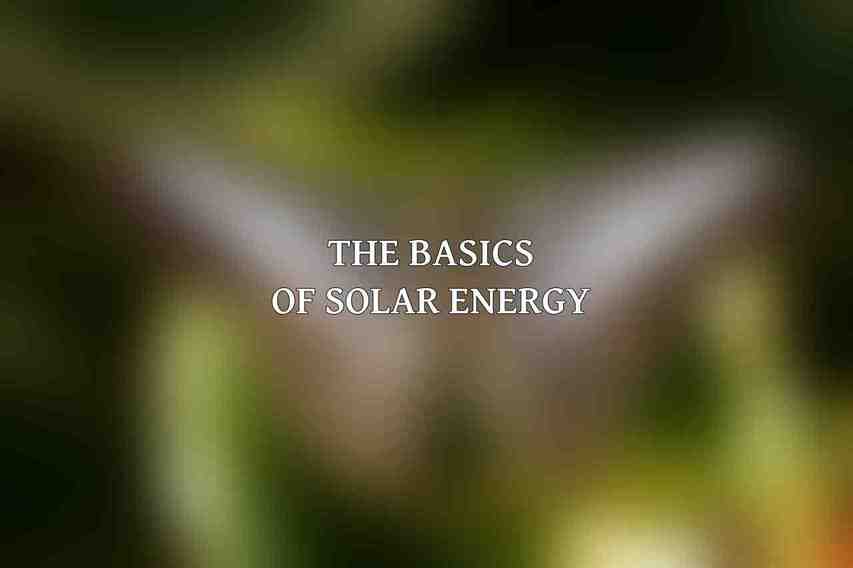Solar power stands out as a beacon of sustainability and innovation. harnessing the boundless energy of the sun, solar panels offer a clean and efficient way to power homes and businesses alike. The concept of converting sunlight into electricity is not only environmentally friendly but also economically advantageous in the long run. As we delve into the technical workings of home solar panels, a world of photovoltaic wonders unfolds.
| Solar Panels for Your Home | Description | Key Features | Average Price |
|---|---|---|---|
Solar Panels Solar Panels |
Capture sunlight and convert it into electricity. | High efficiency, durability, low maintenance. | $2.50 $5.00 per watt |
Inverter Solar Inverter |
Converts direct current (DC) from solar panels to alternating current (AC) that can be used by appliances. | High efficiency, grid-tie or off-grid options, monitoring capabilities. | $1,000 $5,000+ |
Battery Storage System Solar Battery |
Stores excess solar energy for use at night or during power outages. | Capacity (kWh), charge/discharge rate, lifespan. | $500 $10,000+ |
Monitoring System Solar Panel Monitor |
Tracks solar panel performance, energy production, and system status. | Real-time data, remote monitoring, alerts. | $100 $500+ |
Wiring and Conduit Solar Panel Wiring |
Connects solar panels, inverter, and battery storage system. | Appropriate gauge, weather-resistant, UL-listed. | $50 $200+ |
Mounting System Solar Panel Mounting |
Securely mounts solar panels to your roof or ground. | Roof type compatibility, durability, ease of installation. | $200 $1,000+ |
Permitting and Inspection Solar Panel Permit |
Ensures your system meets local building codes and safety standards. | Professional inspection, documentation. | Varies by location |
Quick List :
- 1. How Do Home Solar Panels Work: A Technical Overview:
The Basics of Solar Energy

The sun, our radiant star, beams down copious amounts of energy to Earth every day. Through the marvel of the photovoltaic effect, this sunlight is captured and transformed into usable electrical power using semiconductors. The benefits of solar power extend beyond mere energy production; they encompass a holistic approach to sustainability, cost-effectiveness, and the liberation of individuals and communities from traditional energy grids.
Explore further with Best Places to Buy Home Solar Panels Online
Components of a Home Solar System
Solar Panels
Solar panels come in various forms, each with its unique strengths and efficiencies. Monocrystalline silicon panels, known for their higher efficiency levels, coexist with polycrystalline panels, which offer a cost-effective alternative. Thin-film and amorphous silicon panels cater to specific needs with their flexible structures. These panels, comprising silicon wafers, anti-reflective coatings, junction boxes, encapsulation materials, and sturdy frames, work in harmony to harness sunlight efficiently.
Types of Solar Panels
- Monocrystalline Silicon Panels: With efficiency levels averaging 15-20% and outputs ranging from 250-350 watts, these panels are renowned for their premium quality.
- Polycrystalline Silicon Panels: Operating at around 13-16% efficiency and producing 250-300 watts, these panels strike a balance between performance and affordability.
- Thin-Film Solar Panels: Offering flexibility and an efficiency of 8-12% with outputs of 100-200 watts, these panels are ideal for specific installation requirements.
- Amorphous Silicon Panels: With efficiency rates of 6-10% and outputs from 100-150 watts, these panels excel in niche applications.
Inverters play a crucial role in converting the direct current (DC) generated by solar panels into alternating current (AC) compatible with household appliances. Different types of inverters, such as string inverters, microinverters, and power optimizers, cater to diverse system configurations and energy needs. The efficiency and output of inverters are paramount in ensuring optimal energy conversion and utilization.
Would you like me to continue this article with more detailed information about capturing sunlight, generating electricity, and choosing the right solar panels for your home?
Frequently Asked Questions
How do solar panels generate electricity?
Solar panels work by converting sunlight into electricity through the use of photovoltaic cells, which capture the energy from the sun and convert it into direct current (DC) electricity.
What happens to the electricity generated by the solar panels?
The electricity generated by the solar panels can either be used to power the home’s electrical appliances or stored in a battery for later use. If there is excess electricity generated, it can be fed back into the grid for credit.
How do solar panels work during cloudy days or at night?
During cloudy days or at night when there is no sunlight, the solar panels are not able to generate electricity. In these cases, the electricity can be sourced from the grid or from battery storage.
Read more about this on Home Solar Panels Prices: A Detailed Guide
Do solar panels require regular maintenance?
Solar panels are generally low-maintenance, but it is recommended to clean them periodically to remove dust and debris that can reduce efficiency. It is also important to check for any damage or shading that may affect their performance.
What is the lifespan of home solar panels?
Home solar panels typically have a lifespan of 25-30 years, after which their efficiency may decrease. However, with proper maintenance, they can continue to generate electricity for a longer period of time.

